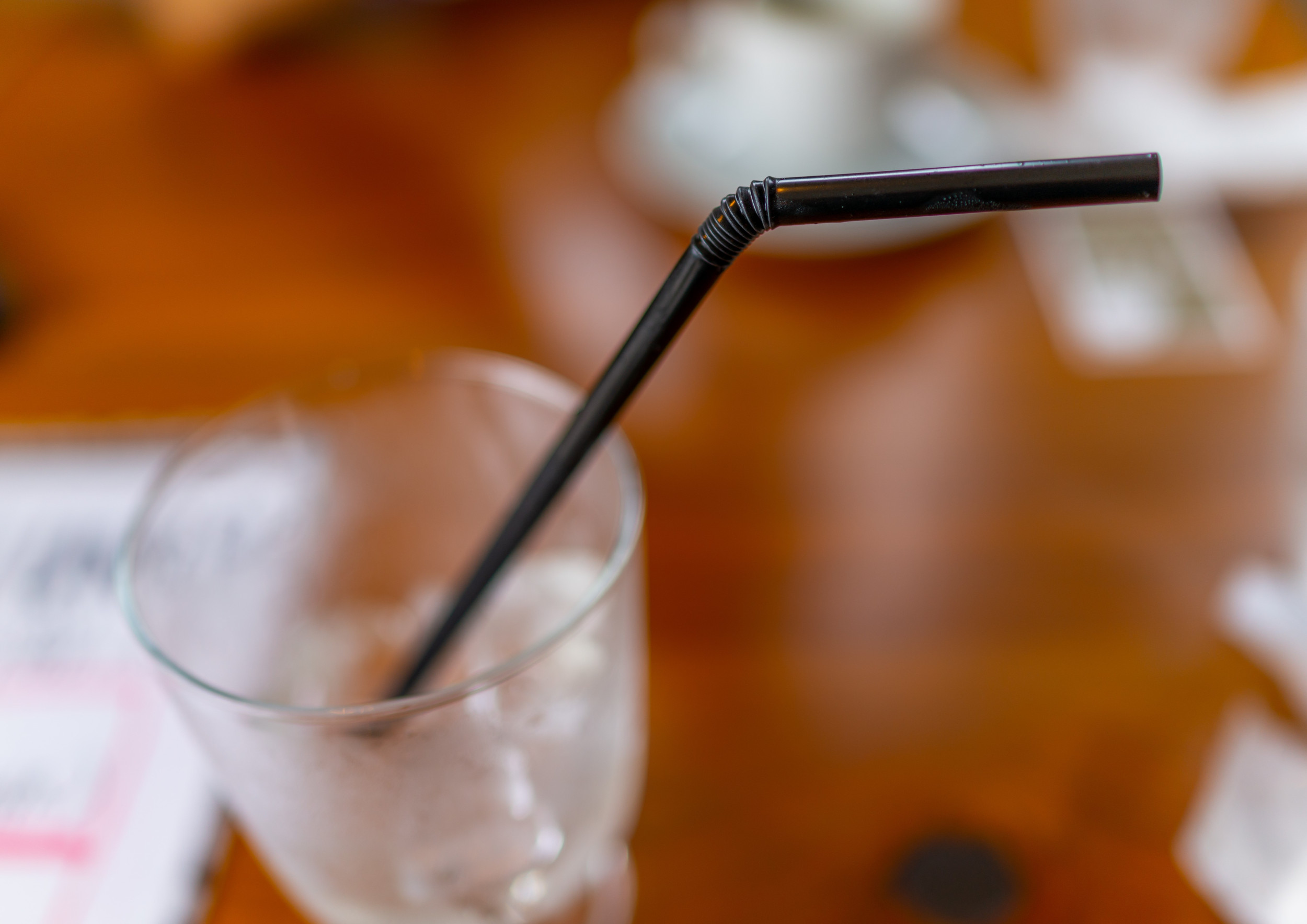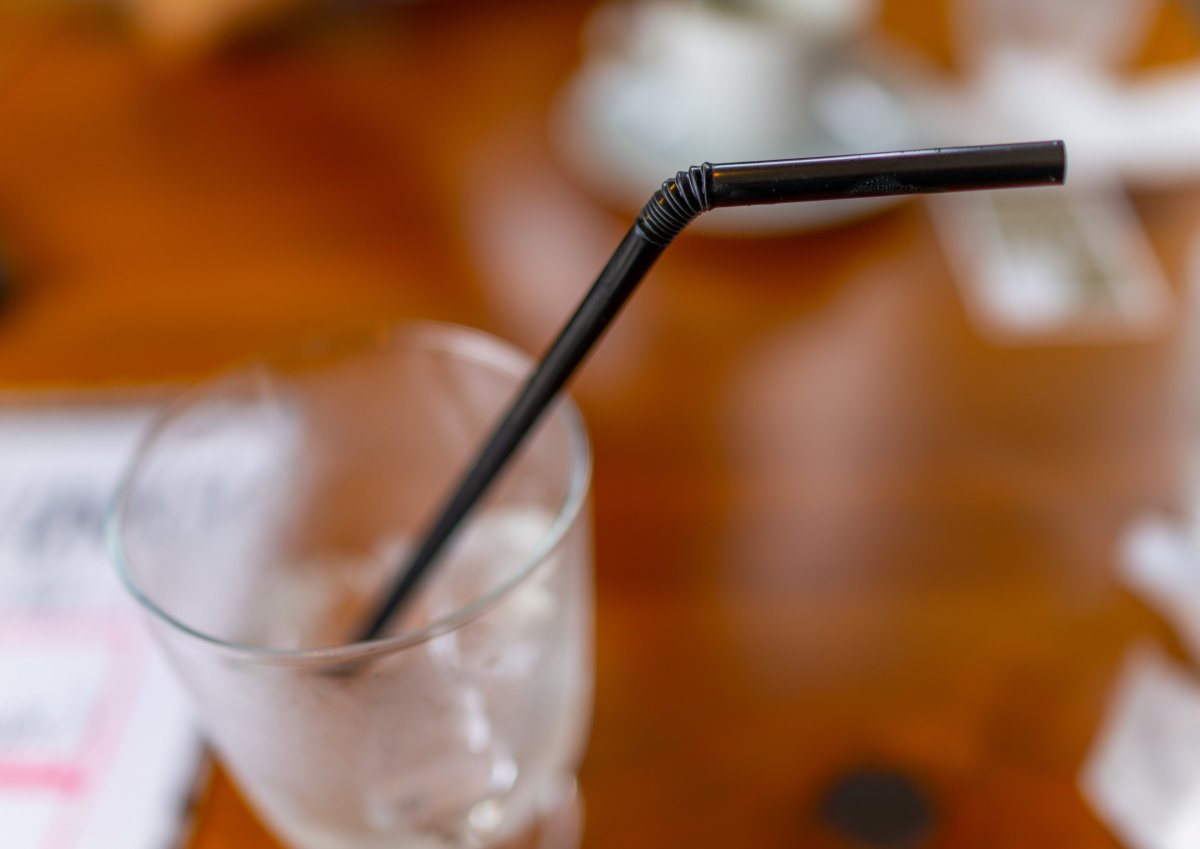
With Donald Trump announcing plans to bring back plastic straws because he doesn’t like paper ones, attention has turned to the potential public health risks of the move.
The Republican president is set to roll back policy brought in by his Democratic predecessor Joe Biden, who had tried to phase out all federal purchases of single-use plastics (such as straws) completely by 2035.
Biden was in favor of more environmentally-friendly paper straws, which can be recycled, but Trump dislikes the implements claiming they “explode” and disintegrate during use.

Eric Lafforgue/Art In All Of Us/Corbis via Getty Images
Why It Matters
Trump’s call for a return to plastic comes amid a culture war on environmental issues. Campaigners are calling for an increase in green policies in a bid to reduce pollution and mitigate the risks caused by climate change, while others insist the claims are overblown, with some doubting the environmental problem exists at all.
Trump’s move on drinking straws has delighted the plastics industry and lobby groups. “Straws are just the beginning,” said Matt Seaholm, president and CEO of the Plastics Industry Association. “‘Back to Plastic’ is a movement we should all get behind.”
But, as will be seen below, his executive order has left environmental campaigners and sea-life charities dismayed. And some medical scientists are also concerned about what “forever chemicals” found in plastics may be doing to public health.
What To Know
Trump’s passion for plastic straws will come as no surprise to his Make America Great Again (MAGA) followers; during the presidential election campaign back in 2020, plastic straws could be purchased through his website which claimed “liberal paper straws don’t work,” The Guardian reported.
But besides the potential harm to the environment caused by the non-biodegradable straws, which often become trapped in the throats or airways of sea creatures, some experts say there may be health risks to humans too.
Potential health risks include:
Forever Chemicals Contaminating Drinks
Most plastic straws contain chemical compounds called BPAs or PFAs. These can leach into the liquids being consumed, especially if they are hot drinks, and some experts fear they may be harmful for human health.
For example, the U.S. Centers for Disease Control and Prevention (CDC) says it remains “uncertain” whether PFA exposure is harmful because more research is required. But the agency also acknowledges that animal studies show the chemicals “may affect reproduction, thyroid function, the immune system and injure the liver.
Last year, the U.S. Food and Drug Administration (FDA) said food companies will voluntarily phase out PFAs in their packaging, although the timescale for this remains unclear. Some states, such as Pennsylvania, are banning the use of forever chemicals across a range of products.
Similarly, the CDC says potential health effects of BPAs are also unclear, although studies suggest it may affect the reproductive system. Tasha Stoiber, senior scientist for the Environmental Working Group, told National Geographic that BPAs “can disrupt hormones in your body and lead to problems, things like increased risk of breast cancer, problems with fertility, things like that.”
It’s important to note that BPA and PFA forever chemicals aren’t solely found in plastic straws; they are used in a bewildering array of products including non-stick cooking pans, food containers, soda cans, and plastic toys. In fact, as explored later in this article, they are frequently found in paper products, such as paper straws, too.
Ingesting Microplastics
Plastic straws take up to 200 years to decompose, according to the World Wildlife Fund. During that time, they break down into microplastics, which end up in human bodies, the water system, soil, and the food chain. The average person consumes a credit card’s worth of microscopic plastic particles every week, according to some estimates.
Some environmental biologists have suggested that microplastics in the bloodstream may cause blockages in the brain and affect its functioning.
Bacterial Growth
“Plastic waste can serve as a vector for pathogens like E. coli and Salmonella to spread and persist in the environment,” according to the Vanella Group, a sustainable waste consulting company. “Reusing plastic items runs contamination risks, even with washing. COVID-19 virus can survive on plastics.”

Andrew Harnik/Getty Images
Are Paper Straws Also Harmful To Human Health?
Most people are aware of the risk of forever chemicals lurking in items such as plastic straws. But even paper products, such as microwave popcorn bags and pizza boxes, are likely to contain forever chemicals.
It means that paper straws, while recyclable, may not necessarily be a better bet when it comes to human health.
A 2023 study in Belgium (funded by the University of Antwerp and the Research Foundation Flanders) assessed a variety of drinking straws, which showed that most contained PFAs used “in order to make these materials water-repellent.”
The researchers tested straws made of plastic, paper, bamboo, glass, and stainless steel. “PFAS were found to be present in almost all types of straws, except for those made of stainless steel,” they concluded.
What People Are Saying
“It’s a ridiculous situation [at the moment]; we’re going back to plastic straws,” President Donald Trump told journalists as he signed the order at the White House. “These [paper] things don’t work. I’ve had them many times and on occasion they break, they explode.”
White House staff secretary Will Scharf agreed with the plan to bring back plastic, saying the drive to force paper on Americans had been costly and “left consumers all over the country wildly dissatisfied with their straws. It really is something that affects ordinary Americans in their everyday lives.”
Christy Leavitt, plastics campaign director for the environmental group Oceana, said she was disappointed and added the majority of U.S. voters would be too. She told Newsweek: “President Trump is moving in the wrong direction on single-use plastics (…) The world is facing a plastic pollution crisis, and we can no longer ignore one of the biggest environmental threats facing our oceans and our planet today.”
The advocacy group Turtle Island Restoration Network has long campaigned against plastic straws, and said: “To prevent another sea turtle from becoming a victim to plastic, we must make personal lifestyle alterations to fight for these species.”
What Happens Next
Trump will drink his Diet Cokes with plastic straws, while human health and environmental activists are likely to try to step-up their campaigns against plastic and forever chemicals.





